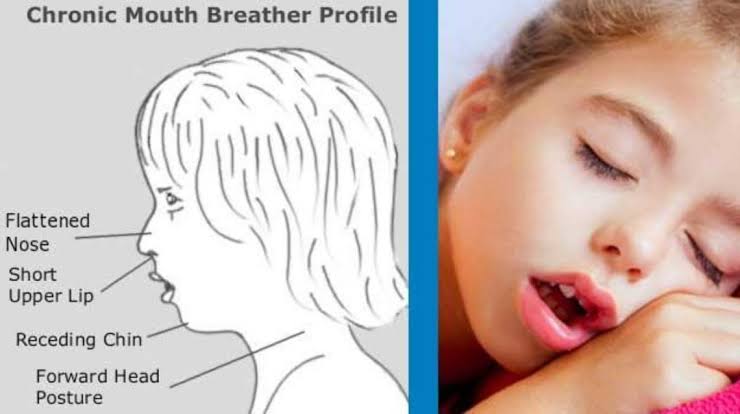Mouth breathing and its impact.
Sometimes people only breathe through their mouths. This is known as mouth breathing.
Mouth breathing typically only becomes necessary when you can’t breathe through your nose due to nasal congestion from allergies or a cold. Also, when you’re exercising strenuously, breathing through the mouth can help get oxygen to your muscles faster.
What happenes when we mouth breath?
Breathing through the mouth all the time, including when you’re sleeping, can lead to problems.
In children, mouth breathing can cause crooked teeth, facial deformities, or poor growth. In adults, chronic mouth breathing can cause bad breath and gum disease. It can also worsen symptoms of other illnesses.
What causes mouth breathing ?
The underlying cause of most cases of mouth breathing is an obstructed (completely blocked or partially blocked) nasal airway.
In other words, there’s something preventing the smooth passage of air into the nose. If your nose is blocked, the body automatically resorts to the only other source that can provide oxygen —
your mouth.
How do I know I’m mouth breathing ?
snoring
dry mouth
bad breath (halitosis)
hoarseness
waking up tired and irritable
chronic fatigue
brain fog
dark circles under the eyes.
How do we diagnose mouth breathing ?
There’s no single test for mouth breathing. A doctor might diagnose mouth breathing during a physical examination when looking at the nostrils or during a visit to find out what’s causing persistent nasal congestion. They may ask questions about sleep, snoring, sinus problems, and difficulty breathing.
A dentist may diagnose mouth breathing during a routine dental examination if you have bad breath, frequent cavities, or gum disease.
If a dentist or doctor notices swollen tonsils, nasal polyps, and other conditions, they may refer you to a specialist, like an ear, nose, and throat (ENT) doctor for further evaluation.

